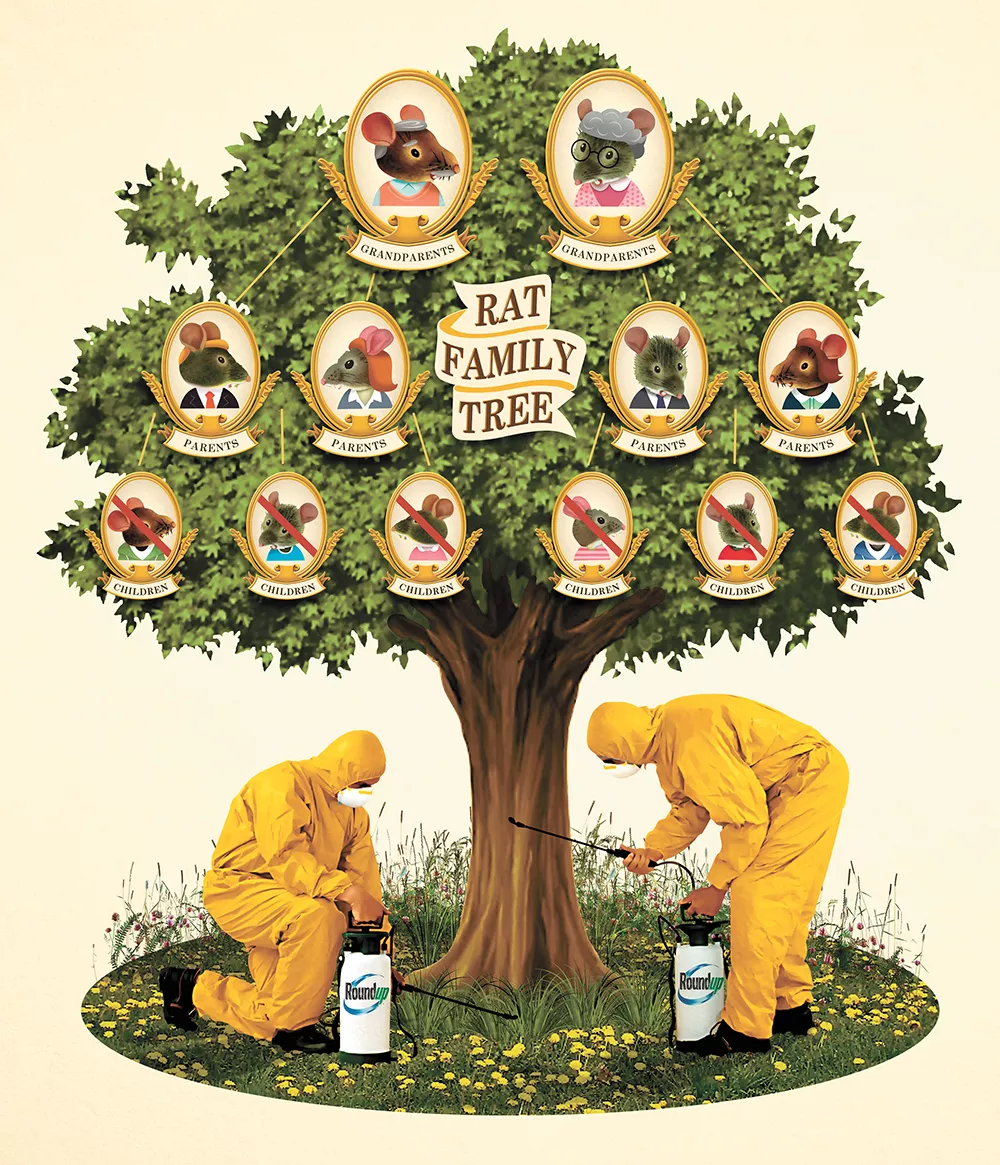Ask which traits someone inherited from their grandmother and they might point to their distinctive nose or squeaky knees.
But a first-of-its kind study from Washington State University shows that what your grandparents and great-grandparents were exposed to could affect your susceptibility to health issues from kidney disease to obesity, and even your ability to reproduce.
For the multiyear study, researchers including Michael Skinner, a WSU professor of biological sciences, exposed pregnant rats to just half the rate of the commonly used herbicide Roundup that is considered OK for exposure.
What they found could change the way governments set health limits for chemicals.
Chemically known as glyphosate, Roundup is the most commonly used herbicide in the world, accounting for almost 72 percent of pesticide use, as noted in the study, published in the journal Nature in April.
Because of the way crops absorb it, pretty much everyone gets exposed, Skinner says.
"When we talk about glyphosate exposure, it's not so much from being sprayed around the farms and stuff. It's actually from the food we eat," he says. "Anything made out of corn and soy, basically, has glyphosate in it."
The herbicide is largely considered safe because, as this study — and many others — showed, there were no health issues with either the initial mother rat who was directly exposed over a week, or with her baby, Skinner says.
"The problem is if you breed the animals out another generation or two, disease dramatically increases."
In fact, about 90 percent of the next two generations developed health problems by the time they were 1 year old, including kidney disease, obesity, or problems with their ovaries, testicles or prostate.
The most dramatic finding, Skinner says, was that about one-third of the future generations had miscarriages and/or died during pregnancy.
"It's something we've never focused on before," Skinner says. "If we focus on just direct exposure, everything is just sort of hunky-dory fine. But we now know that we could be influencing our future generations."
Skinner says this is just the latest of several studies he's worked on looking into generational toxicology — essentially examining how the sperm and egg can get changed with exposure to various chemicals, resulting in the passing of negative traits onto subsequent generations.
His work has shown that it's not always the DNA itself getting changed, but rather that certain compounds can hook up to DNA and essentially turn certain traits on or off, making people more susceptible to certain health problems.
"If we knew this genetic makeup in your 20s or 30s, it turns out there's a whole range of therapeutic drugs that could prevent problems."
For example, there are some drugs that can delay the onset of breast cancer, he says, and diet and lifestyle changes could be made in advance of other issues.
"I think this will push us into the era of preventive medicine," Skinner says.
But with more research into the impacts of Roundup and other widely used chemicals and compounds, ideally scientists and doctors can help people avoid some of the worst impacts and better understand how their exposure could impact their progeny, Skinner says.
"It's not just a decision of our own right now to say, 'I don't mind being exposed to this,'" Skinner says. "If those have effects generations down the line, we have a responsibility to our future generations."



















